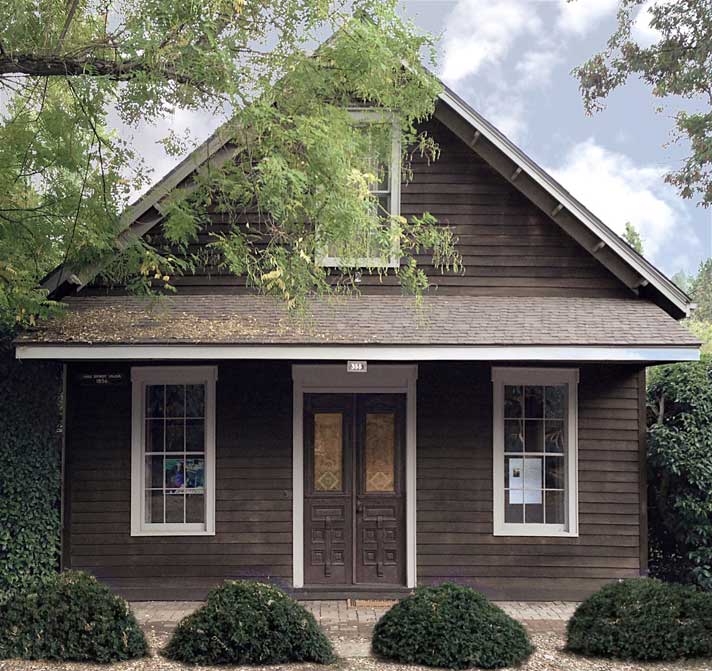On Real Estate & More – December 2018/January 2019
Jacksonville got its start as a gold rush town; later settlers coming west on wagon trains found the Rogue Valley to be a desirable place to establish land claims and settle down as farmers and ranchers. Jacksonville was at one time the largest town in the Oregon Territory until the railroad bypassed the town in 1884. Jacksonville remained the county seat and a prominent town in Southern Oregon; however, many businesses and residents relocated over time to Medford and it took Jacksonville’s prominent place with its railroad stop.
According to the City of Jacksonville, in 1966 Jacksonville became the first National Historic Landmark District (District) in the State of Oregon. The town was listed for having the state’s most extensive and complete example of a late 19th century inland commercial mining community. The District encompasses about 326 acres and contains 98 buildings built between 1850 and 1900 that have been preserved and maintained.
Due to the City’s listing as a National Historic Landmark District, there is a higher level of review for many uses and situations which are regulated by design guidelines that control changes to the properties included in the District.
If you are interested in opening a new business in the city limits, you and your real estate broker should first check with the City, especially for the following items:
- Business license
- OLCC license
- Signage
- Any exterior changes to a structure, including paint color
- Exterior displays
- Sidewalks
- Exterior lighting, holiday lighting
- Parking
- Zoning/Uses
- Noise issues/standards
If you are interested in purchasing a house or you own a home within the city limits, the following are a few examples of things to keep in mind that may require review and approval through the Planning Department:
- Fencing
- Any exterior modifications to a structure, including paint color
- Tree removal
- Improvements that require a Building Permit
- Sidewalks/park strips
- Uses other than residential use
- Landscaping
- Keeping of animals
- Parking
Although being in a District does mean additional restrictions on development, there are benefits beyond just living in a picturesque community. The City has a Historic Preservation Fund grant program that was created to form public/private partnerships to protect and preserve Jacksonville’s collection of historically-listed structures. Each year, the Historic and Architectural Review Commission (HARC) recommends a set monetary amount for specific exterior restoration projects. Additionally, many studies have been conducted on historic districts and their impact on property values. The findings conclusively show that historic districts enhance property values. Historic district designation has also been found to protect property values from wild fluctuations and provides stability in the housing market.

 Sandy J. Brown lives in Jacksonville and is a real estate broker and land use planner with Windermere Van Vleet Jacksonville. She can be reached at sandyjbrown@windermere.com or 831-588-8204.
Sandy J. Brown lives in Jacksonville and is a real estate broker and land use planner with Windermere Van Vleet Jacksonville. She can be reached at sandyjbrown@windermere.com or 831-588-8204.